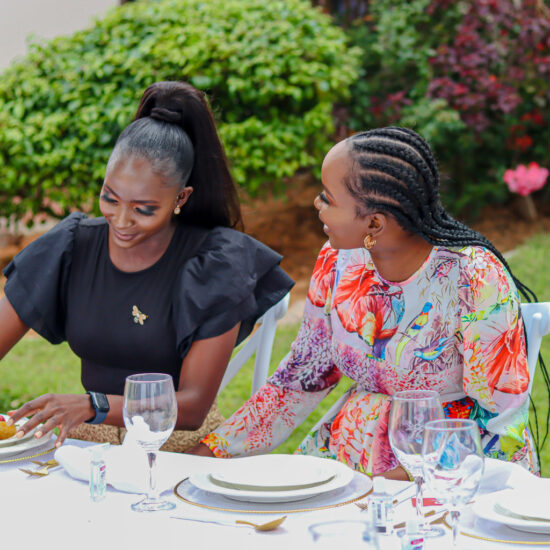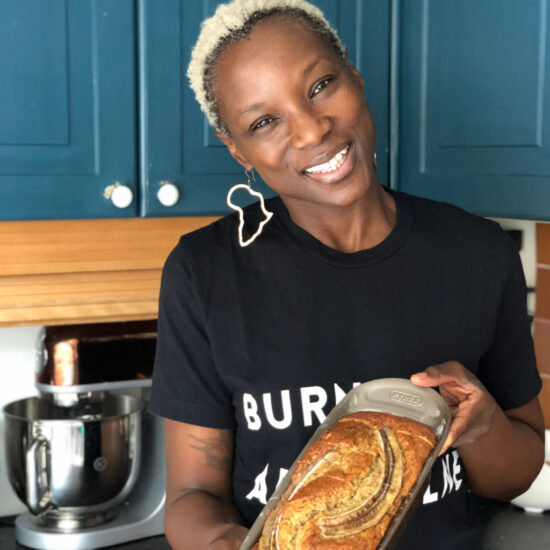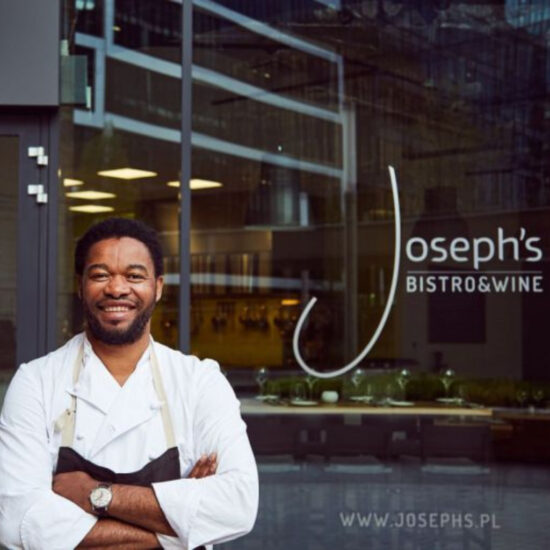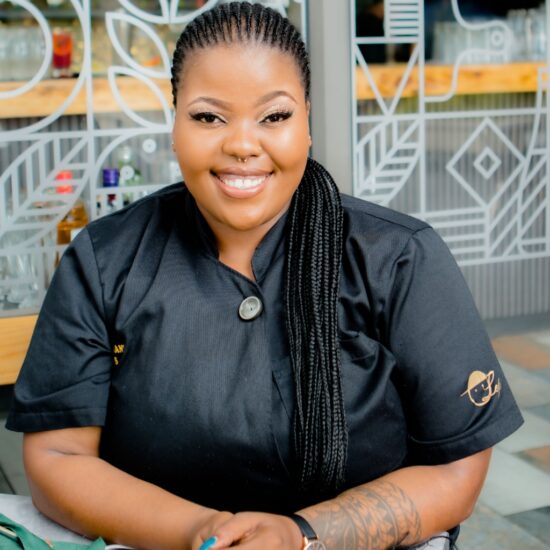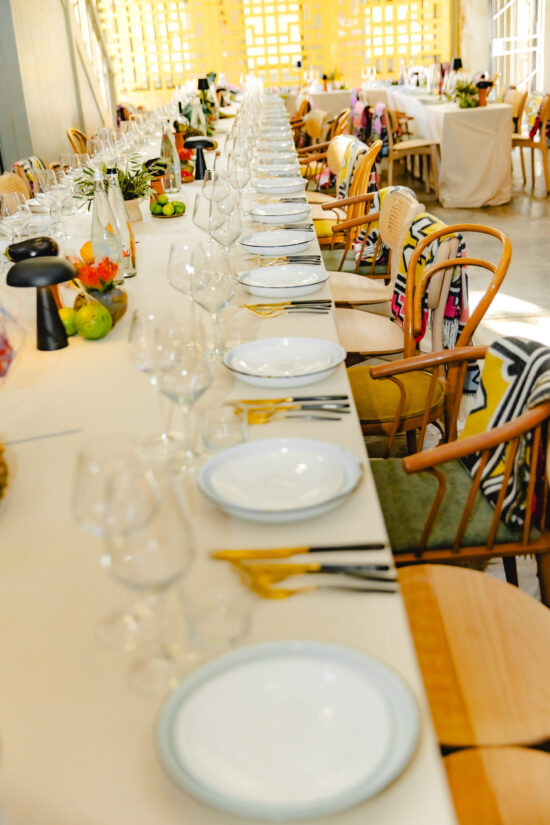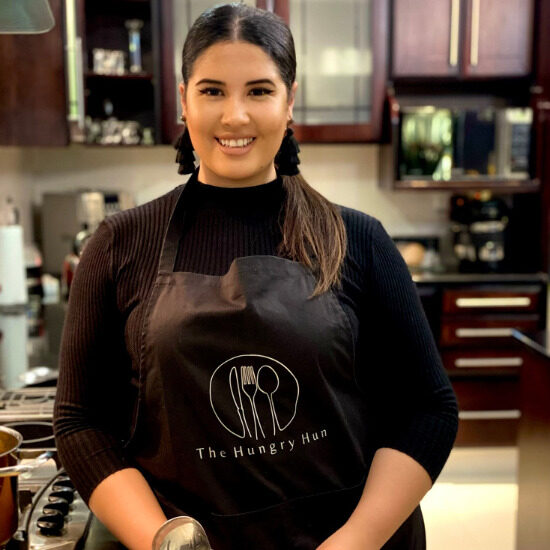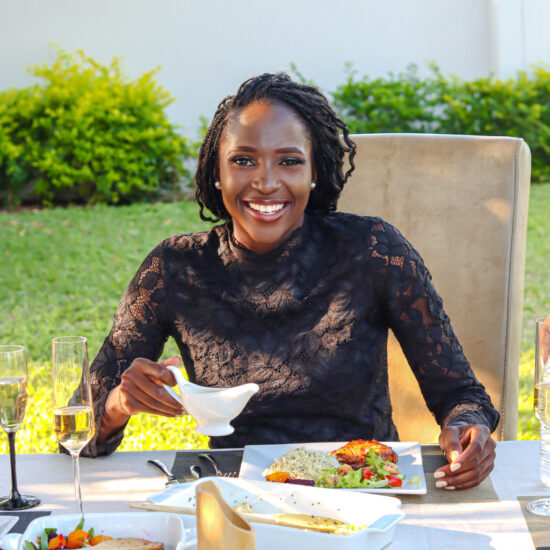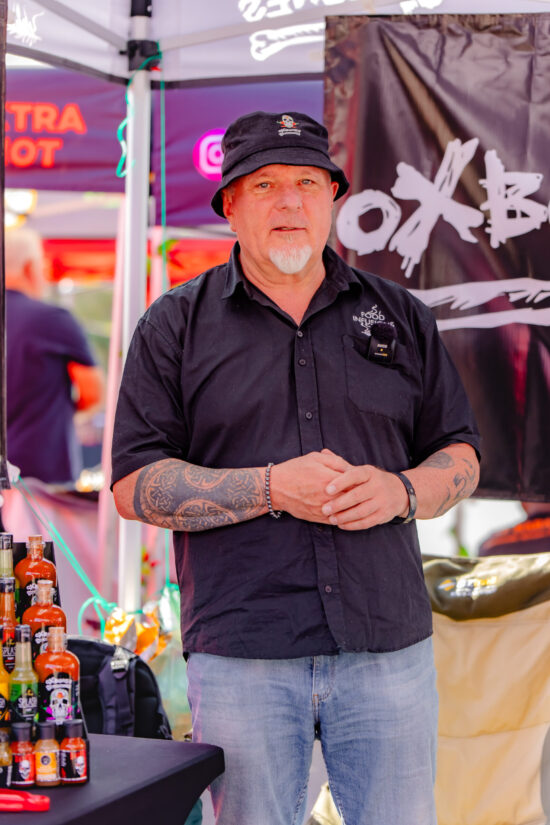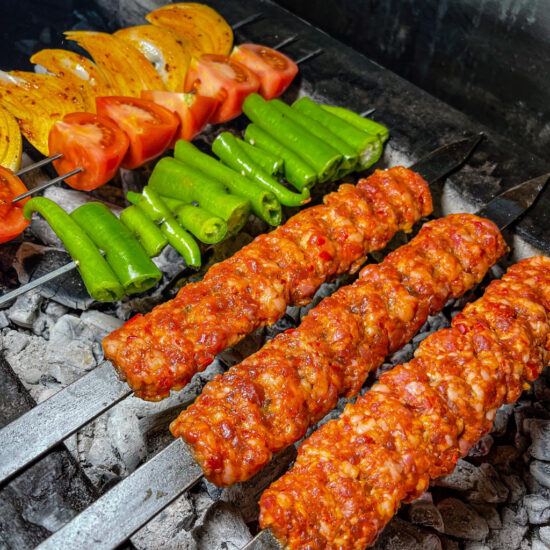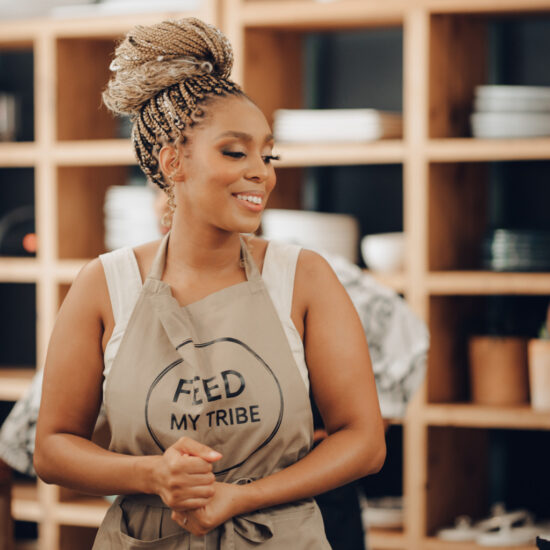
Tayla Naika
- 4 min read

Your first impression of Anna, is that she is colorful with a bit of a free spirit. You get a sense that she wants to spread some kind of joy with every encounter but you’re not entirely sure of what kind.
Once you sit down with her and dig a little deeper into this intriguing woman, you realize that not only is her self-expression joyful- she has a very eclectic sense of style, which makes her very difficult to miss, in a room full of people frankly – but you also quickly, get the sense that her life and career trajectory has been just as enthralling.
While some of us love food for the simple reason that it tastes good and it brings communities together. People like Anna, have decided to make it their life’s work, to help us understand WHO & WHY we are. The complex nuances of how food, at a very basic level, helps shape our identity, culture and traditions.
She studied biological anthropology, holds a PhD in epidemiology and she is a qualified chef. Remarkable doesn’t seem befitting. Her journey around the world brought her back to home ground after short but significant stays in other African countries like Botswana until finally settling back in SA, leading to her current work as a Food Anthropologist.
What is THAT you ask? We told you she was intriguing…
1. What is Food Anthropology?
Food anthropologists work on the cultural, historical, medical, evolutionary, economic, environmental, political and interpersonal significance of food to people and populations. My work is mostly focused on Southern Africa, but this type of work is undertaken all over the world. Most of my time is spent researching and writing but I also lecture at various universities and chef schools. I think it is important to apply theory to creating social justice so I am also a director at Harvesting Heritage, a nonprofit organization that focuses on education and food equality issues pertaining to indigenous ingredients, small farmers and chefs.
2. How did you find yourself working in this field?
My initial training at Cambridge University was in social and biological anthropology. My PhD is in epidemiology (the study of disease in populations) and I also studied at the Prue Leith Culinary Institute to be a chef. My work combines these areas of expertise.
3. What do you love about food that made you end up working in this field?
I am greedy. I like eating delicious food. And I am nosey so I like to look inside people’s pots and ask them what they are doing and why (culturally but also technically – I like watching knife skills and fermenting technique in action. I find I learn such a lot that way. I love to cook and feed people. There is something so soothing about mixing a cake or chopping an onion. Putting a bowl of food in front of someone is so satisfying. I also love that food is a way to understand who people are. With all the food that they farm, forage, hunt, cook, serve and share, people tell you who they are. I also find that food is a very good way to get people to remember past events that were happening around the food – there is something about remembering smell and taste that triggers other memories.
4. You are originally from Europe… what were the stark differences in culture with how we perceive/revere/ celebrate & enjoy food?
I am and I am not so my experience of Europe and European foodways was probably quite atypical. My parents were South African, and I grew up in exile during the apartheid years. So, physically my family home was in England but everyone in it was Southern African…And most of the food was Southern African. Even when it wasn’t all the longing for food was Southern African – my dad used to tell us stories about how the mangos in South Africa were so juicy that you had to eat them in the bath. It all sounded so enticing. I think what that early experience did was fill me with a sense of wonder and joy at the idea of a ‘promised land’ – even now (and I have lived in South Africa for 30 years) every time I eat a mango I feel the joy of knowing that I made it home.
5. What would you like to remind us about our African cuisine that you believe is fast fading? What are we not appreciating about African cuisine?
So many things but I suppose more than anything I would remind people about deliciousness and joy. So much research on heritage food focuses on health and the environment and it is true that indigenous ingredients are wonderful for the environment and our health but they are also just fabulous to eat. Sorghum (our region’s great ancient grain is so versatile and so delicious), the various soured milks of our region are heavenly good – amasi curds are richer and more delicious than ricotta so we need to savour them.
6. You work closely with those who aim to preserve the African culture through food. Why is this important?
First, there are the health and environmental reasons – often heritage ingredients are nutritious, organic, free range, fermented, low GI, gluten free, waterwise, pest resistant etc


Second food culture is everyone’s favourite form of material culture – it brings nutrition but it also brings delicious joy and community connections. It is a way that all people express their creativity and generosity.
Third food and identity are so connected. We are what we eat. People and culture matter. If we ignore certain people and the way they cook, that sends the message that those people don’t matter.
Fourth economically there are opportunities for Africa and Africans within traditional food. If we don’t identify the cultures that originally farmed, cooked, processed ingredients there is a danger of biopiracy. Understanding food culture and the intellectual property therein promotes benefit sharing.
7. How do you think modern families could reincorporate indigenous ingredients back into our diet?
It is important to remember than many people are already are doing so. Especially in Botswana where many people never stopped eating heritage and indigenous ingredients. South Africa, because it is more industrialised, has been more distanced from heritage crops but even here many people eat that way anyway. For those who don’t, I recognize that it can be difficult – many ingredients are not stocked in supermarkets so if you don’t have a connection to a rural farming community it can be difficult and/ or expensive. We need to create better supply chains that link consumers and producers because most of the time it is about lack of access not a lack of desire in consumers. Sometimes it is about a lack of time – modern lives don’t necessarily have the time for the long slow cooking that a lot of Southern African cuisine requires so we need to start producing ready made and par-cooked versions. Again, this is beginning to happen. I suppose last thing to say is that we need to introduce such flavours to our children – children like what they know so if all they know is McDonalds we have only ourselves to blame. But absolutely no judgement – we all have kids who love Happy Meal toys – and we don’t want them to live outside of the wider world just to have a sense that their part of the world matters as much as any other.
8. Your favorite spots to indulge in African cuisine in South Africa and other parts of the continent you have visited
The sad thing for visitors about South Africa is that the best food is in people’s homes rather than restaurants. The chef I love in Joburg are Andile Somdaka at Eziko (who specializes in classic Xhosa cuisine). In Cape Town Chef Mmabatho Molefe (at Emazulwini restaurant) specializes in modern Zulu cuisine. At Clara’s Barn in Stellenbosch Chef Bertus Bason does lovely modern Afrikaans food – Afrikaans food is a creole fusion genre born in Africa. In Durban I love the Durban Indian Diaspora cuisine at the Britania Hotel. Outside of South Africa, in Nigeria Chef Michael Elegebede’s Itan Test Kitchen is so exciting and so delicious. I like chocolatier Selassie Atadika’s work in Accra a lot too. In Rwanda Chef Dieuviel Malonga at Mesa Malonga is a genius. I adore Congolese food so anything by Chef Coco Reinarhz in Kinshasa is glorious.
9. Top 5 African food brands if you have any.
For all that I love healthy, indigenous I also love great junk food. I love Nigerian Maggi stock cubes – so much better than the ones they sell in South Africa. I am addicted to Rwandan Akabanga chili oil (I think my blood must at this point be at least 90% Akabanga. I adore South African NikNak cheese maize chips. In terms of healthier stuff Setsong tea is a small herb tea brand from Sekhukhuneland in South Africa using indigenous ingredients that is rapidly growing – they have got contracts with a supermarket in the UK so they are beginning to export. Is Baleni Salt a brand? They are an epically ancient salt harvesting community in Limpopo who are now sold all over the world and used by the top chefs internationally. I hesitate to call them a brand because the salt is also sacred and ‘brand’ seems too small a word for all that they are…

